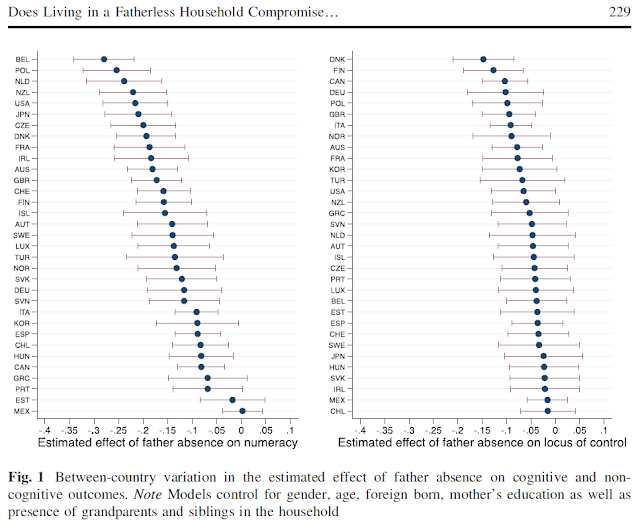On Father's Day: Reflecting on My Role in My Child's Basic Education
One way to gauge the role of a father in a child's basic education is to compare various characteristics of school-age children for those who live with and without a father. A 2008 paper published in Social Indicators Research shows that fatherless children are less likely to be healthy, more likely to have attention problems, more likely to repeat a grade, more likely to be suspended, less likely to receive A's, and less likely to enjoy school. Not having a father seems to correlate with so many negative outcomes. Whether this is a clear proof of the important role a father plays in a child's basic education can still be debated since not having a father often correlates with other factors that are already known to affect a child's education and health. Poverty, for instance, is one important factor and this often correlates with not having a father. Another factor is racism since African American samples represent a significant portion in the studies conducted in the United States. Fortunately, there is now an international study on the effects of a father's absence on a child's cognitive and noncognitive skills that controls for socioeconomic background, measured by the child's mother's educational background. And the results are clear, in all 33 countries, a father's absence is associated with adverse outcomes in children.
The data come from the Programme for International Student Assessment’s release for 2012. Cognitive measures are based on scores on a standardized math exam (Numeracy). Noncognitive skills are gauged by responses to survey questions which generally ask how much a child attributes success to either effort or fate (Locus of Control). The results are summarized in the figure below:
The effects are negative across all countries and it is apparently bigger for cognitive outcomes. Clearly, the effects of a father's absence on a child's education are not exclusive to the United States. It is therefore not due to being African American. It is not merely a product of racism. And since the above have also been corrected with mother's education and immigrant status, the effects seen above are beyond poverty.
The mere absence of a father unfortunately does not tell why and how these negative effects come about. And of course, as a father, I know that our mere presence cannot likewise guarantee more positive outcomes. The best we can do as dads on this Father's day therefore is to reflect simply on how we can best help our children in their development and schooling. And perhaps, it is no longer our absence that counts, but also our presence. Happy Father's Day to all.
The data come from the Programme for International Student Assessment’s release for 2012. Cognitive measures are based on scores on a standardized math exam (Numeracy). Noncognitive skills are gauged by responses to survey questions which generally ask how much a child attributes success to either effort or fate (Locus of Control). The results are summarized in the figure below:
 |
| Above copied from Radl, J., Salazar, L. & Cebolla-Boado, H. Eur J Population (2017) 33: 217. doi:10.1007/s10680-017-9414-8 |
The mere absence of a father unfortunately does not tell why and how these negative effects come about. And of course, as a father, I know that our mere presence cannot likewise guarantee more positive outcomes. The best we can do as dads on this Father's day therefore is to reflect simply on how we can best help our children in their development and schooling. And perhaps, it is no longer our absence that counts, but also our presence. Happy Father's Day to all.
Comments
Post a Comment